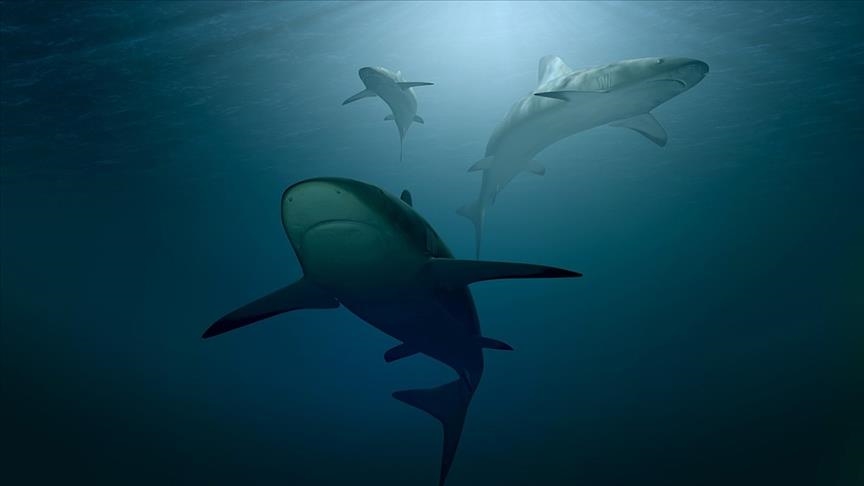Rising ocean acidity may damage sharks’ teeth: Study
Lead author warns highly mineralized teeth are still vulnerable to corrosion under future acidification

ISTANBUL
Increasing ocean acidity could damage sharks’ teeth, a new study published Wednesday in Frontiers in Marine Science warned.
As carbon emissions rise, oceans absorb more CO₂, lowering pH and increasing acidity — a shift that threatens a wide range of marine species and ecosystems.
“Shark teeth, despite being composed of highly mineralized phosphates, are still vulnerable to corrosion under future ocean acidification scenarios," said Maximilian Baum, lead author of the study and biologist at Heinrich Heine University Düsseldorf in Germany.
Maximilian Baum and his team collected 600 naturally shed teeth from 10 blacktip reef sharks (Carcharhinus melanopterus) at the Sea Life Oberhausen aquarium in Germany.
While most sharks continuously lose and replace their teeth, the replacement rate varies by species from a few days to several weeks.
For the experiment, researchers selected 16 intact teeth and 36 slightly damaged teeth and placed them in two separate 20-liter tanks for eight weeks, each with different pH conditions. The control tank held seawater at pH 8.2, reflecting current ocean levels, while the other tank contained more acidic water at pH 7.
Sebastian Fraune, the study’s senior author and professor at Heinrich Heine University, said that teeth exposed to more acidic water showed “visible surface damage such as cracks and holes, increased root corrosion, and structural degradation” compared with those incubated at pH 8.2.
The researchers noted that damage to shark teeth caused by acidified water could potentially affect how sharks capture and process their prey, which in turn might influence feeding efficiency and digestion.
The study examined only discarded, non-living shark teeth, so potential repair or replacement processes in living sharks were not considered.
The researchers noted that blacktip reef sharks swim with their mouths open, exposing teeth continuously to seawater, and even moderate drops in pH could cause damage, particularly in species with slower tooth replacement.
The study indicates that even microscopic damage could pose a significant threat to animals that rely on their teeth for survival.
“It’s a reminder that climate change impacts cascade through entire food webs and ecosystems,” Baum added.
Anadolu Agency website contains only a portion of the news stories offered to subscribers in the AA News Broadcasting System (HAS), and in summarized form. Please contact us for subscription options.

